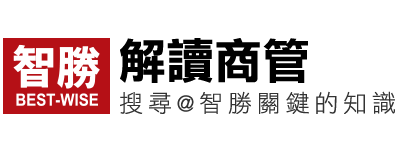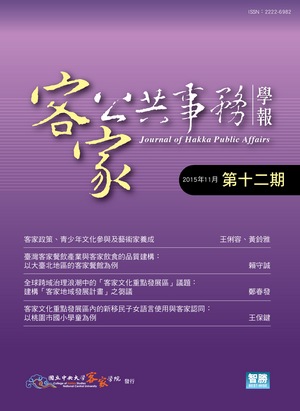Hot News
| 中文篇名 |
客家文化重點發展區內的新移民子女語言使用與客家認同:以桃園市國小學童為例 | |
|---|---|---|
| 英文篇名 |
The Study of the New Immigrants’ Children and Hakka Identity in the Major Hakka Cultural Areas: The Example of the Primary School Students in the Taoyuan City | |
| 作者 | ||
| 中文摘要 |
本文以深度訪談及焦點座談會為研究方法,並運用族群理論,以桃園市客家文化重點發展區內國小學童為例,探討新移民子女之語言使用及其客家族群自我認同情況。本文的主要研究發現:一、新移民子女客語使用,受到「主要教養者」及「家庭成員共通語言」兩個因素影響;二、除印尼籍新移民子女使用客語可能性較高之外,新移民子女以使用華語為主;三、新移民子女之客家族群認同上,以台灣人為主;惟新移民子女常與原屬國親友接觸者,則出現多重認定的情況,並具有「新移民架構層次的國家認同」及「族群認同層次的客家認同」兩種層次認同。此外,為強化新移民子女的客家意識及族群認同,本文建議鼓勵新移民子女習得客家重要歷史事件或參與客家民俗節慶活動等,以建構新移民子女的客家族群意識。 | |
| 英文摘要 |
The research takes the primary school students in the Taoyuan city as the example to discuss the relation between the new immigrants’ children and their Hakka Identity. The essay employs the ethnic theory as the analysis theory. In-depth interviews and focus group method are the methodology. The contributions of the research include four points. 1. The main watcher of children and the common language of family-using affect the language of children-speaking. 2. Only the children of Indonesian might speak the Hakka language, the other children of the new immigrants used to speak mandarin. 3. Most new immigrants’ children name themselves as the Taiwanese; however, when some children keep contact with their original country’s family and they have multi-identities, which include “national identity in the new immigrant approach” and “Hakka identity in the ethnic approach”. In addition, to enhance the children’s Hakka identity, the research suggests that the important historic Hakka events should be learned and the Hakka festivals should be shared by the children of the new immigrants. | |
| 關鍵詞 |
客家族群認同、客語、新移民、Hakka ethnic identity、Hakka language、new immigrants | |
| 刊名 | ||
| 期數 | ||
| 起訖頁 |
069-086 | |
| 出版單位 | ||
| DOI | ||
| QRCode |
| |
| 上一篇 |



